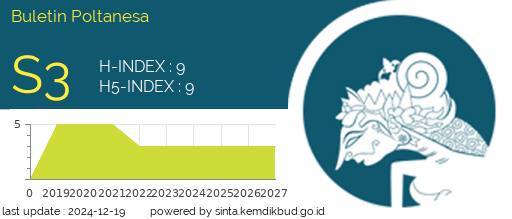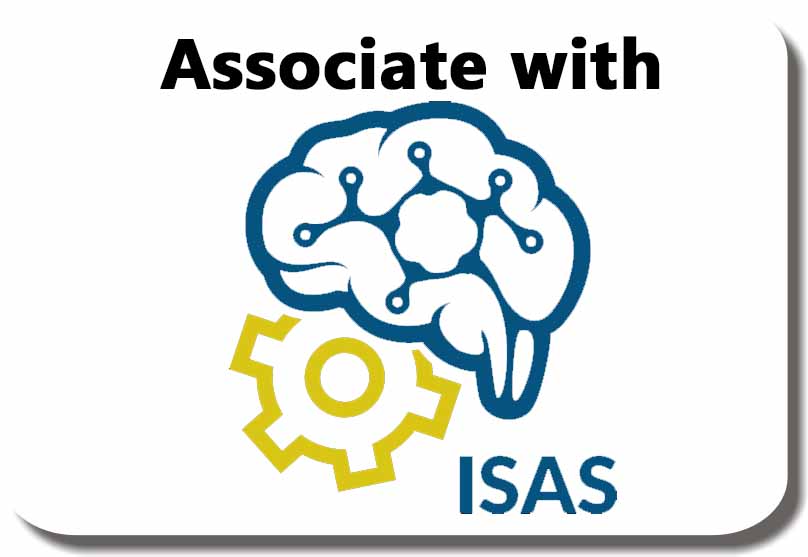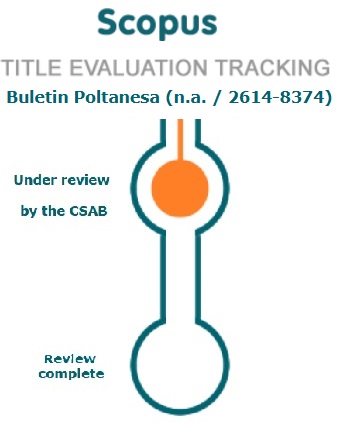The Government’s Internal Control System in Realizing Good Governance at the Regional Financial Agency of Pontianak City
DOI:
https://doi.org/10.51967/tanesa.v26i1.3382Keywords:
Government Internal Control System, Good Governance, Regional Financial Agency, Pontianak City.Abstract
This study aims to analyze the role of the Government Internal Control System (SPIP) in supporting the implementation of good governance principles at the Pontianak City Regional Financial Agency. The approach used is descriptive qualitative, with inscription collection techniques through interviews, documentation studies, and literature reviews. SPIP is a control system that is carried out comprehensively and continuously by all elements in a government organization, intending to provide adequate assurance of achieving operational effectiveness, reliability of financial reporting, security of state assets, and compliance with laws and regulations. The results of the study indicate that the implementation of SPIP at the Pontianak City Regional Financial Agency refers to Government Regulation 60 of 2008, which consists of five main components: control environment, risk assessment, control activities, information and communication, and monitoring. The five components have been implemented quite well and have contributed to increasing transparency, accountability, and organizational governance effectiveness. However, there are still challenges in its implementation, such as unequal understanding among employees regarding the concept and function of SPIP, and the need to strengthen the role of the Government Internal Supervisory Apparatus (APIP) in supervisory activities. Overall, SPIP has a strategic role in encouraging the realization of good governance within the Pontianak City Regional Finance Agency.
References
Adminkoperasi. (2021). SPIP Agar Mewujudkan Otoritasan yang Good Governance. Retrieved from Dinas Koperasi UKM Kab. Kulon Progo.
Andini, P. (2019). Peranan Pengaturan Penerapan Intern Persediaan Barang Pada Dinas Penerapan Penduduk Serta Keluarga Berencana Kota Meserta (Doctoral dissertation).
Azlina, N. &. (2015). Pengaruh Good Governance serta penerapan intern kepada kompetensiotoritas kabupaten pelalawan. Jurnal akuntansi universitas jember, 12(2), 32-42.
Bastian, Indra. (2006). Buku Pengaturan Akuntansi Sektor Publik. Jakarta: Salemba Empat.
BPKP. (n.d.). Sekilas SPIP. Retrieved from BPKP: https://www.bpkp.go.id/spip/konten/400/sekilas-spip.bpkp
BPKP. (n.d.). Pengaturan Penerapan Intern Otoritas (SPIP) agar mewujudkan Good Governance & Clean Government. Retrieved from BPKP: https://www.bpkp.go.id/ntt/berita/read/22065/5/Pengaturan-PenerapanIntern-Otoritas-SPIP-agar-mewujudkan-Good-Governance-CleanGovernment.bpkp
Christia, A. M., & Ispriyarso, B. (2019). Desentralisasi fiskal serta otonomi daerah di Indonesia. Law Reform, 15(1), 149-163.
Duarmas, D. R. (2016). Fundamental Good Governance Bersama Pelayanan Publik Di Kantor Camat Kormomolin Kabupaten Maluku Tenggara Barat. Jurnal Administrasi Publik, 1, 37.
Duma Karambe, M. (2021). Pengaruh Pengaturan Penerapan Internal bersama Mewujudkanpengelolaan Otoritasan yang Baik Pada Otoritas Kota Palopo. (Doctoral dissertation, UNIVERSITAS MUHAMMADIYAH PALOPO).
Farmanta, Y. (2022). Penerapan Pengaturan Penerapan Intern Otoritas (SPIP) pada Kantor Inspektorat Kabupaten Buton Utara Menuju Good Governance. JIAPI: Jurnal Ilmu Administrasi Serta Otoritasan Indonesia, 3(1), 50-61.
Friandy, B. (2018). Menuju Clean Goverment Bersama Negara Demokrasi.. Retrieved from bappeda tanjungbalaikota.
Gladisya, A., Sihombing, A. Y., & Silvia, P. (2022). Perkembangan Otonomi Daerah serta Problematika Penerapannya di Susun Agar Memenuhi Tugas Mata Kuliah: Hukum Otoritasan Daerah serta OTDA. BULLET: Jurnal Multidisiplin Ilmu, 1(03), 441-451.
Horngren, Harrison, Bamber. (2005). Akuntansi Edisi Ke-6. Jakarta: Indeks.
Kurniawati, R., & Musonef, G. (2021). Pengaruh Penerapan Penerapan Internal, Serta Kualitas Auditor Internal Kepadapengelolaan Keotoritasan Yang Baik (Studi Kasus pada Inspektorat Daerah Kabupaten Magetan). Al-Mal: Jurnal Akuntansi serta Finansial Islam, 2(2), 209-228.
Mahmudi, M. (2016). Analisis pemberitaan finansial otoritas daerah. Edisi Ketiga, UPP STIM YKPN, Yogyakarta.
Moleong, Lexy J. 2007. Metodologi Studi Kualitatif. Bandung: Remaja Rosdakarya
Nasir, A. &. (2019). Implementasi Good Governance serta Pengaturan Penerapan Intern Otoritas agar Memaksimalkanresponsibilitas KompetensiInstitusi Otoritas (Studi Kasus pada Otoritas Kabupaten Bandung Barat). In Prosiding Industrial Research Workshop and National Seminar, 10, 760-766.
Nawawi, J. (2012). Membangun keyakinanbersama mewujudkan good governance. Jurnal Ilmiah Ilmu Otoritasan, 1(3), 19-29.
Nur, U. M. (2019). Pengaturan Penerapan Internal Otoritas (SPIP). Pontianak: DIV Akuntansi Sektor Publik Jpersoalan Akuntansi Politeknik Negeri Pontianak.
Peraturan Otoritas Nomor 60 Tahun 2008 Terkait Pengaturan Penerapan Intern Otoritas.
Peraturan Walikota Pontianak Nomor 98 Tahun 2020 Terkait Kedudukan, Struktur Organisasi, Tugas Pokok, Fungsi, Uraian Tugas serta Tata Kerja Baserta Finansial daerah Kota Pontianak.
Pertiwi, D. (2016). Implementasi Pengaturan Penerapan Intern Otoritas (SPIP) bersama Mewujudkan Good Governance pada Dispenda Provinsi Sulawesi Selatan (Doctoral dissertation, Universitas Islam Negeri Alauddin Makassar).
Transfigurasi RENSTRA 2020-2024 Baserta Finansial Daerah Kota Pontianak.
PPI, D. (2021, January 20). Menuju Pengelolaan Otoritasan yang Baik melangkaui Penataan Desain SPIP Balai PPIKHL Jabal Nusa Tahun 2021. Retrieved from DITJEN PPI.
Putra, I. G. A. S., & Putra, I. M. P. D. (2018). Pengaruh Good Governance Serta Pengaturan Penerapan Intern Otoritas Pada Kompetensiotoritas Daerah. E-jurnal Akuntansi Universitas Udayana, 25(3), 1720-1743.
Qothrunnada, K. (2021). Good Governance: Pengertian serta Kaidahkaidahnya. Retrieved from detikEdu: https://www.detik.com/edu/detikpedia/d-5766029/good-governance-pengertian-serta-kaidahkaidahnya#:~:text=Good%20governance%20diartikan%20selaku%20per wujuserta,kontrol%20segenapnya%20ada%20pada%20rakyat
Rahardjo, M. (2011). Metode Agregasi Inskripsi Studi Kualitatif.
Rohayatin, T., Warsito, T., Pribadi, U., Nurmandi, A., Kumorotmo, W., & Suranto, S. (2017). Faktor Penyebab Belum Optimalnya Kualitas Pengpersoalan Pelayanan Publik Bersama Birokrasi Otoritasan. Caraka Prabu: Jurnal Ilmu Otoritasan, 1(01), 22-36.
Sadjiarto, A. (2000).responsibilitas serta pengukuran kompetensiotoritasan. Jurnal akuntansi serta Finansial, 2(2), 138-150.
Sugiyono. (2015). Metode Studi Pendidikan (Pendekatan Kuantitatif, Kualitatif serta R&D). Bandung: Penerbit CV.Alfabeta.
Sugiyono. (2018). Metode Studi kuantitatif, kualitatif serta R & D. Bandung: Alfabeta.
Sulaeman, H., Elvira Zeyn, S. E., & MSi, A. K. (2022). Pengaruh Aksesibilitas Pemberitaan Finansial serta Pengaturan Penerapan Intern Otoritas (SPIP) Kepadaresponsibilitas Pengelolaan Finansial Desa (Survei pada Desa di Kabupaten Bandung) (Doctoral dissertation, Universitas Pasunserta Bandung).
Tolley, S. S. (2017). Pengaruh Pengaturan Penerapan Intern Otoritas kepada Kompetensi Satuan Kerja Perangkat Daerah Kabupaten Sigi. Jurnal Katalogis, 5(2), 179-190.
Wibawa, K. (2019). Urgensi Keterbukaan Pemberitaan bersama Pelayanan Publik selaku Upaya Mewujudkanpengelolaan Otoritasan yang Baik. Administrative Law&Governance Journal, 2, 218-234.
Wibisono, A. G. (2014). Revitalisasi Fundamental Good Governance bersama Rangka Pengpersoalan Otoritasan yang Baik, Bersih, serta Bebas Korupsi, Kolusi, serta Nepotisme. Law Reform, 10(1), 31-47.
Winartha, I. M. (n.d.). Metode Studi Sosial Ekonomi (Vol. viii). Yogyakarta: Yogyakarta: ANDI, 2006.
Downloads
Published
How to Cite
Issue
Section
License
Copyright (c) 2025 Buletin Poltanesa

This work is licensed under a Creative Commons Attribution-ShareAlike 4.0 International License.
The copyright of this article is transferred to Buletin Poltanesa and Politeknik Pertanian Negeri Samarinda, when the article is accepted for publication. the authors transfer all and all rights into and to paper including but not limited to all copyrights in the Buletin Poltanesa. The author represents and warrants that the original is the original and that he/she is the author of this paper unless the material is clearly identified as the original source, with notification of the permission of the copyright owner if necessary.
A Copyright permission is obtained for material published elsewhere and who require permission for this reproduction. Furthermore, I / We hereby transfer the unlimited publication rights of the above paper to Poltanesa. Copyright transfer includes exclusive rights to reproduce and distribute articles, including reprints, translations, photographic reproductions, microforms, electronic forms (offline, online), or other similar reproductions.
The author's mark is appropriate for and accepts responsibility for releasing this material on behalf of any and all coauthor. This Agreement shall be signed by at least one author who has obtained the consent of the co-author (s) if applicable. After the submission of this agreement is signed by the author concerned, the amendment of the author or in the order of the author listed shall not be accepted.








